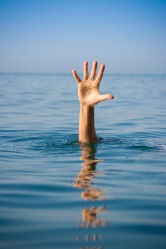Ethical Behavior Requires Self-Discovery
Ethical behavior follows ethical knowing
Ethical or moral behavior refers to instances in our lives when we try to understand a situation in order to decide how to act.
A common problem in these situations is identifying what knowledge you can rely on to understand and to make decisions.
Do you rely on inherited cultural values? Religious traditions? A recent best-selling book?
Whatever advice you choose, you need to be aware it originated in the efforts of men and women to understand their lives.
You can make similar efforts to understand your life.
Where to start
You can start by shifting your attention from what is currently happening around you to what you are doing in your mind when you try to understand situations and to act responsibly.
|
Moral or ethical knowing is necessary for moral or ethical behavior. It requires thinking, then acting on what you understand is the right way to square your behavior with your values. Powerful questions help you develop this skill. Powerful Fact Questions |
 |
Powerful questions use the power of language to force you to look for answers beyond your own experience and to find evidence that will ground your understanding in reality. They oblige you to investigate both what you know and how you know it. Did you imagine it, or did you find it “out there”?
Here are five questions to guide your progress toward making decisions. Their intent is not to solve problems but to find ways to act that ultimately serve the common good.
The first two questions focus on the past.
1. What's going on here that suddenly has my attention? You just heard what sounds like a cry for "Help." This question moves you out of your current state – you are quietly reading a book at the beach - and into a state of being concerned about what you just heard.
The question moves you to investigate, understand, and verify what it is that now has your attention. It also forces you to start choosing what you may have to do and how to do it, based on what you understand is happening and what you are concerned about.
2. Is it what I think it is, or could it be something else? This question looks for answers to the first question, collects and examines evidence assembled for each answer, then selects one that makes sense with the “what’s going on” question.
Having satisfactorily answered the first two “fact” questions, the questioning process pushes you into the third and fourth questions. They are questions whose objectives lie in the future because they force you to come up with strategies for ethical behavior.
Powerful Action Questions
3. What do I do? This is an action question. It forces you to search for behaviors that will serve your concerns. You might analyze successful actions you have taken before in similar situations, consult others whose opinions you respect and do what they have done.
This question also uncovers what you are committed to protecting and what you don’t care about.
4. Is it the right thing to do? This question asks you to consider the impact your choice will have on the lives of others as well as on yourself. Is it good for you only but not for others? It is good for “us” but not for “those people” over there? Will the way all of us live together remain the same, improve, or decline as a result of this action? How do you know?
5. Will I do it? This question moves you from knowing into acting. It also reveals what kind of a person you are. When you respond to an inner demand that you do what you know you ought to do, you have integrity.




